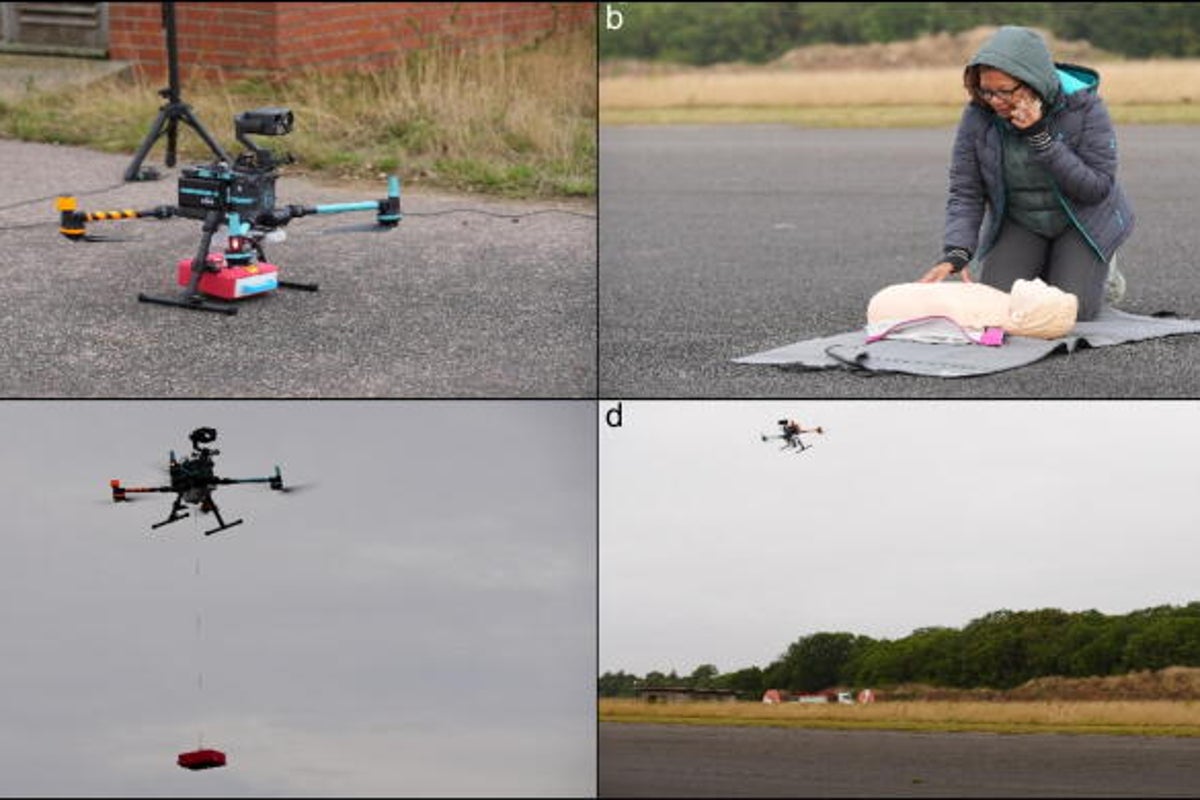
Drones could soon be used by the NHS to deliver defibrillators directly to people whose hearts have stopped, potentially reaching patients faster than ambulances and saving more lives.
A study by the University of Warwick, funded by the National Institute of Health and Care Research (NIHR), tested how a drone delivery system might work in rural communities where winding roads often slow ambulances. The team said the results show drones could be “very promising” in real emergencies.
Every year, less than one in 10 of the more than 30,000 people in the UK that suffer a cardiac arrest outside of hospital survive the ordeal. A cardiac arrest, often caused by a heart attack, is when the patient's heart stops.
But if defibrillators are deployed within minutes, it can more than double the chance of survival.
For the study, a trial drone station was set up in a remote area. Volunteers were instructed to dial 999 when they encountered a CPR mannequin, simulating a person who had collapsed. A central control centre then dispatched a drone carrying a defibrillator.
The aircraft flew to the scene, hovered, and lowered the device to the ground on a winch. Volunteers were coached through resuscitation by ambulance service call handlers while using the defibrillator on the mannequin.
On average, it took less than ten minutes from the initial emergency call to the first defibrillator shock.
Dr Christopher Smith, the chief investigator, said: “Ambulance services work as swiftly as possible to get to patients who have suffered cardiac arrests. However, it can sometimes be difficult to get there quickly. AEDs [automated external defibrillators] can be used by members of the public before the ambulance gets there, but this rarely happens. We’ve built a drone system to deliver defibrillators to people having cardiac arrest, which could help save lives.
“We have demonstrated that drones can safely fly long distances with a defibrillator attached and maintain real-time communications with emergency services during the 999 call. We are in a position where we could operationalise this system and use it for real emergencies across the UK soon.”
The project involved the Welsh Ambulance Service and autonomous drone specialists SkyBound. Larger trials will now assess whether the technology can be rolled out nationally.
Stephen Kinnock, a health minister, said: “I want Britain at the forefront of this technological revolution to transform patient care.
“Drone technology has the potential to help reach patients faster, especially in rural communities. This government is backing our country’s leading scientists to research, test, and develop new forms of emergency healthcare which have the potential to save lives.”
Similar drone systems are already in use in parts of Denmark and Sweden.
Weight-loss jabs are not enough to tackle the obesity crisis, experts warn
MP loses eight stone on Mounjaro after battling online abuse
Sir Chris Hoy launches free gym membership scheme for men with prostate cancer
‘I’ve lived in UK for 45 years – but the NHS didn’t believe me’
New weight-loss pill could reach UK by next year, says Mounjaro boss







